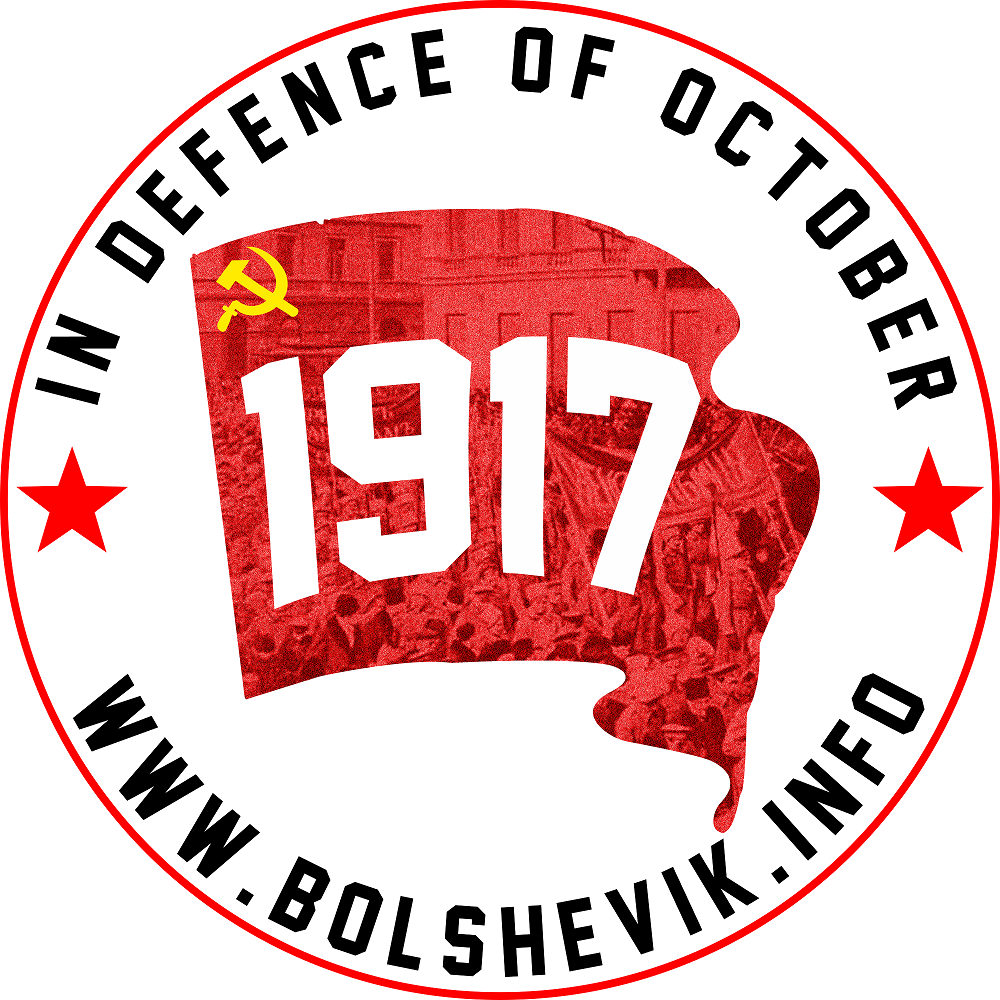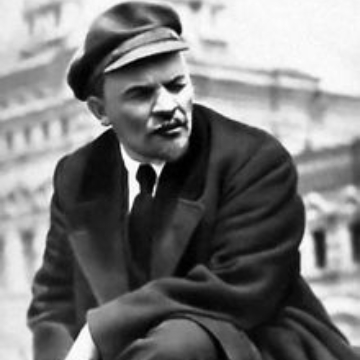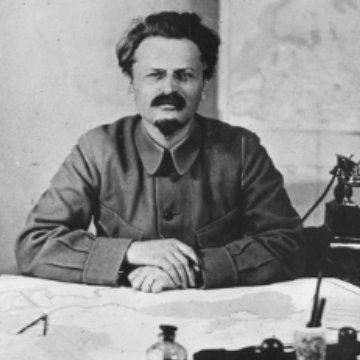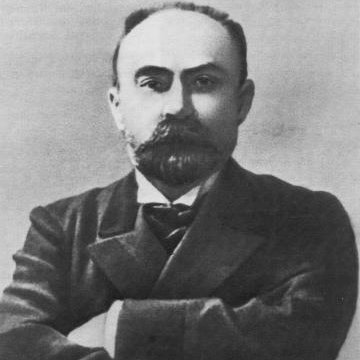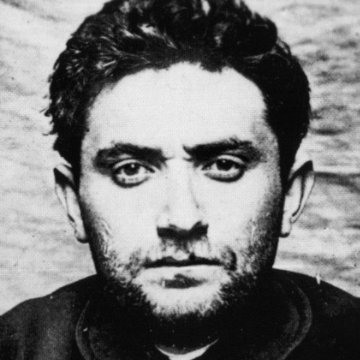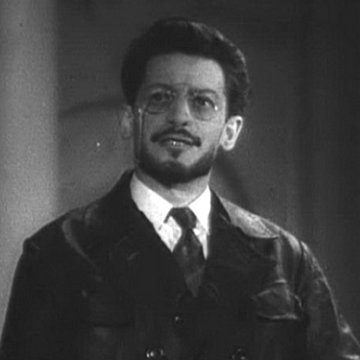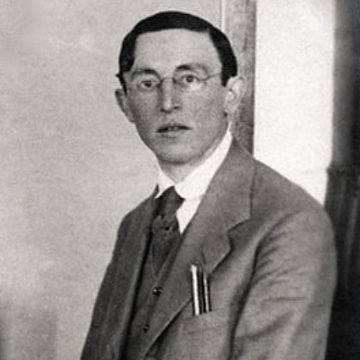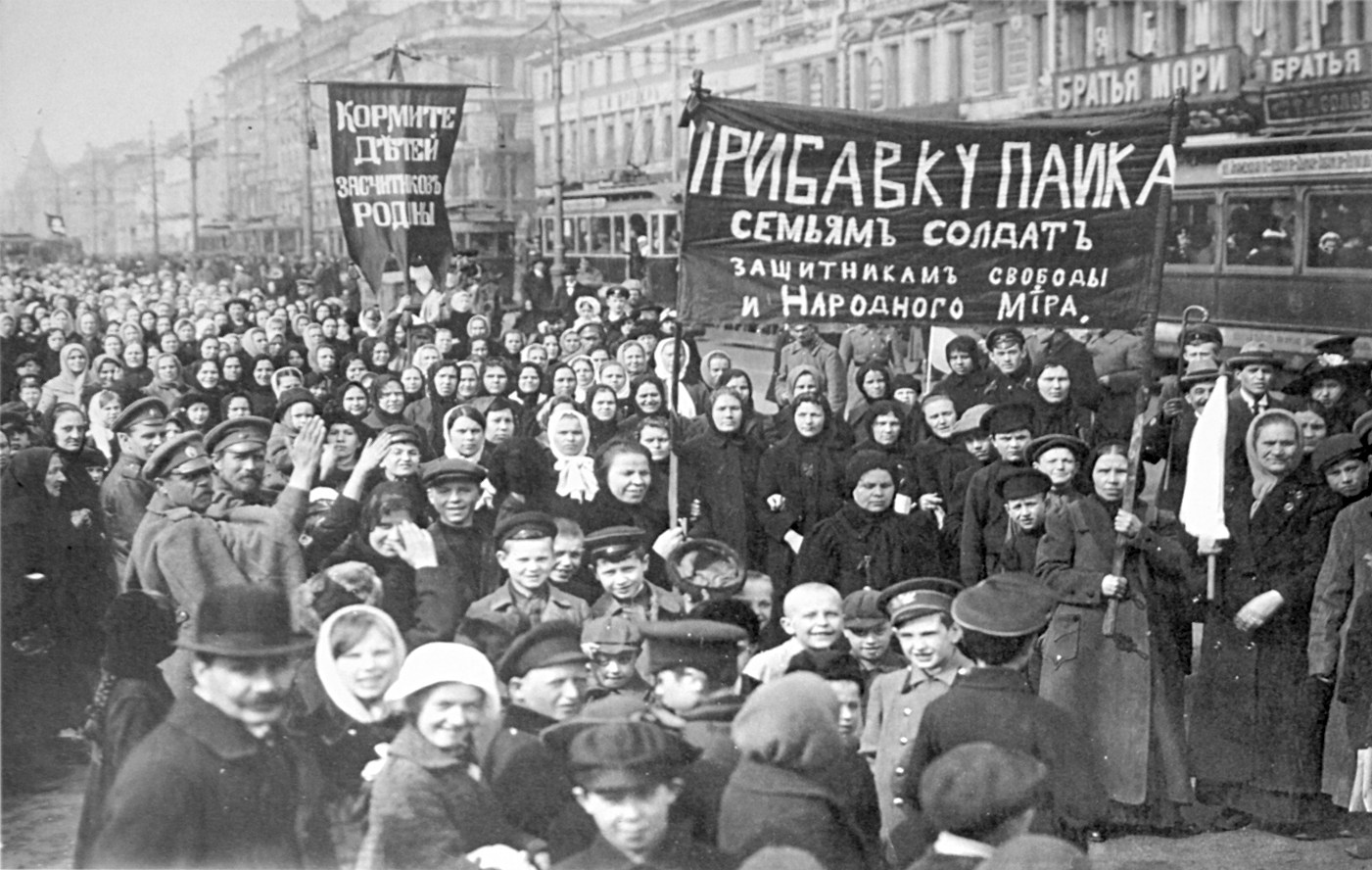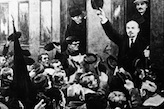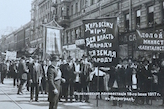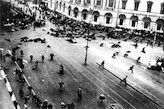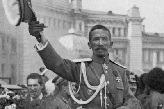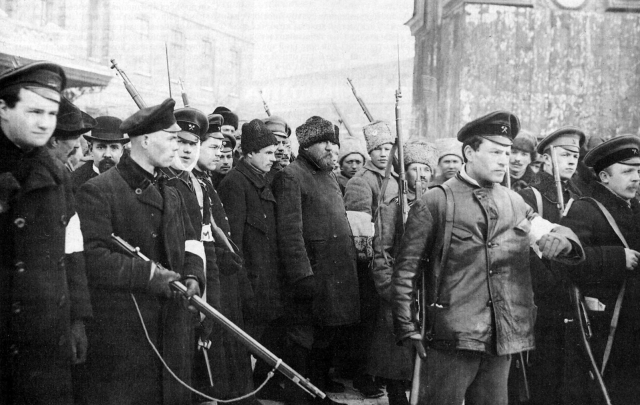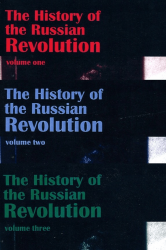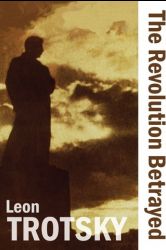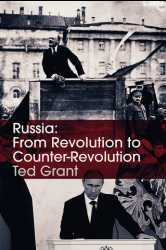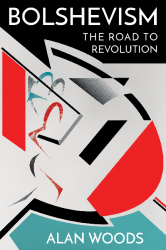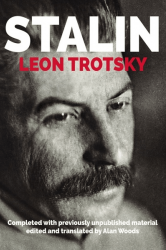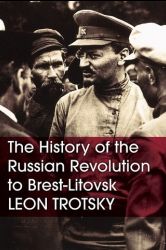"When that Kerensky of yours reintroduced capital punishment at the front, that was not terror, gentlemen, was it?"
There was a time when Plekhanov was a socialist, a prominent exponent of revolutionary socialism.
At that time—now, alas, in the limbo of forgotten things—Plekhanov expressed his opinion on a subject which happens to have vital significance in the present period.
It happened in 1903, when the Russian Social-Democrats were framing their programme at the Second Party Congress.
The minutes of this Congress contain the following very informative entry, that might have been written specially for the present day:
“Posadovsky. The statements made here for and against the amendments strike me as being not a dispute over details but a serious difference of opinion; without a doubt we disagree on the following fundamental question: should our future policy be governed by certain basic democratic principles, admitted to have absolute value, or are all democratic principles to be governed exclusively by what is profitable for our party? I definitely declare for the latter. There is no democratic principle that we could not make subservient to the interests of our party. (Interjection: “Even inviolability of the person?”) Yes! Inviolability of the person as well! As a revolutionary party striving towards its ultimate goal-that of a social revolution-we must regard democratic principles exclusively from the point of view of the speediest possible achievement of that goal, from the point of view of our party’s interests. If one or another demand does not turn out to our advantage we shall not use it.
“Therefore I oppose any amendments that are likely in future to narrow our freedom of action.”
“Plekhanov. I fully support what Comrade Posadovsky has said. Every given democratic principle should be examined not on its own merits, in the abstract, but in its bearing on what may be called the basic principle of democracy, namely, on the principle that says: salus populi suprema lex.[1] Translated into the language of the revolutionary, this means that the success of the revolution is the highest law. If it were necessary for the success of the revolution to restrict the affect of one or another democratic principle, it would be criminal to stop at such a restriction. As my own personal opinion I would say that even the principle of universal suffrage should be regarded from the point of view of this basic principle of democracy I have just mentioned. Hypothetically it is conceivable that we. Social-Democrats, may have occasion to come out against universal suffrage. The bourgeoisie of the Italian republics once deprived persons belonging to the nobility of political rights. The revolutionary proletariat could restrict the political rights of the upper classes the way these classes once restricted the political rights of the proletariat. The fitness of such a measure could only be judged by the rule: salus revolutionis suprema lex. The same point of view should be adopted by us on the question of the duration of parliaments. If, on an impulse of revolutionary enthusiasm, the people were to elect a very good parliament, a sort of Chambre Introuvable, we should try and make it a long parliament; and if the elections turned out to be unfavourable we should try and dismiss it not in two years’ time, but if possible in two weeks” (Minutes of the Second Congress of the R.S.D.L.P., pp. 168-69).
The enemies of socialism may be deprived for a time not only of inviolability of the person, and not only of freedom of the press, but of universal suffrage as well. A bad parliament should be “dismissed” in two weeks. The good of the revolution, the good of the working class, is the highest law. That was how Plekhanov spoke when he was a socialist. That was how the great majority of the present-day Mensheviks spoke, those same Mensheviks who are now screaming about “Bolshevik terror”.
The “good of the revolution” now demands a grim fight against saboteurs, organisers of military cadet insurrections, and newspapers run by bankers. When the Soviet authorities embark upon such struggle, the so-called socialists from the camp of the Mensheviks and S.R.s shout from all the housetops against civil war and terror.
When that Kerensky[2] of yours reintroduced capital punishment at the front, that was not terror, gentlemen, was it?
When your coalition cabinet, with the hands of the Kornilovs,[3] machine-gunned whole regiments for showing insufficient enthusiasm for the war, that was not civil war, gentlemen, was it?
When those Kerenskys and Avksentyevs[4] of yours threw 3,000 soldiers into a single prison in Minsk for “harmful agitation”, that was not terror, gentlemen, was it?
When you suppressed the workers’ newspapers, that was not terror, gentlemen, was it?
The only difference is that the Kerenskys, Avksentyevs and Lieberdans,[5] hand in glove with the Kornilovs and Savinkovs,[6] have practised terror against the workers, soldiers and peasants in the interests of a handful of landowners and bankers, while the Soviet government is taking strong measures against the landowners, marauders and their underlings—in the interests of the workers, soldiers and peasants.
Notes
[1] The welfare of the people is the highest law.—Ed.
[2] [PLACEHOLDER.]
[3] [PLACEHOLDER.]
[4] [PLACEHOLDER.]
[5] [PLACEHOLDER.]
[6] [PLACEHOLDER.]
Source: Marxist Internet Archive.

